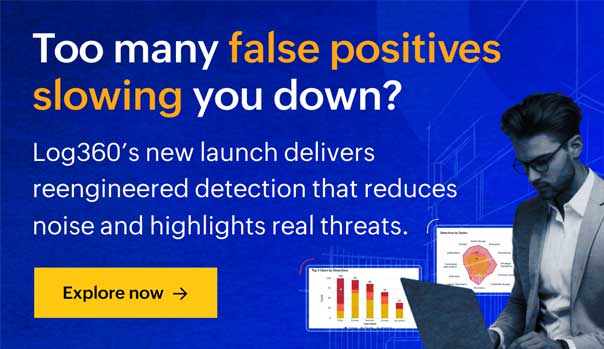Organizations of different sizes are gradually outsourcing their security operations to third parties, like managed security service providers (MSSPs), to enjoy benefits such as low maintenance costs, expertise on the domain, and the latest technologies. While MSSPs continuously improve their services by adapting to the varied requirements of the industry, they are not immune to challenges. Especially with the cyber landscape continuously changing, MSSPs face a wide range of challenges.
Let's take a look at some of the key challenges MSSPs are likely to face.
- Complexity of the threat landscape: A primary challenge that MSSPs face is the complexity of the threat landscape. Organizations that adopt a hybrid strategy offer a wider landscape for attackers to target. MSSPs must ensure that the strategy they devise for their clients is inclusive of multiple platforms and devices so they don't miss out on critical vulnerabilities. Further, MSSPs must also stay vigilant and informed about emerging threats and attack vectors, and they must be equipped to defend against them.
- Talent shortage: The shortage of skilled cybersecurity professionals is another huge challenge that MSSPs face. The demand for talented security professionals has increased lately, and the supply hasn't been consistent. This makes it difficult for MSSPs to recruit and retain talented security professionals. Further, hiring experienced professionals becomes expensive. Additionally, training and development programs to keep the workforce updated on recent trends has also become extremely expensive, making it difficult for MSSPs to develop talented professionals.
- Compliance and regulatory requirements: Compliance and regulatory requirements change based on the geolocation of the business and the industry. Depending on the sector in which their clients operate, MSSPs may be subject to various regulatory frameworks, such as the GDPR, HIPAA, or the PCI DSS. MSSPs must have an in-depth understanding of the legal landscape of different industries and different countries so they can help their clients stay compliant at all times. Failure to meet regulatory requirements can result in financial penalties and can also damage the reputation of MSSPs.
- Managing alert fatigue: The volume of alerts raised in different clients' environments can often lead MSSPs to face alert fatigue. Attending to critical alerts and addressing them is a time-consuming and resource-intensive process. This often causes MSSPs to deviate from providing effective security operations.
- Scalability and flexibility: As organizations expand, their security requirements also evolve. MSSPs must be ready to scale as and when their clients expand their business. Additionally, MSSPs must be prepared to support clients with diverse IT environments, ranging from on-premises data centers to cloud-based infrastructures. Achieving scalability and flexibility while maintaining the highest standards of security is a delicate balancing act for MSSPs.
- Vendor fragmentation: Choosing the right vendor is important for MSSPs to provide seamless services to their clients. With a wide range of security solutions and vendors available on the market, MSSPs must carefully analyze and select the best vendor that offers integration capabilities and interoperability. Managing multiple tools from multiple vendors can also be an exhaustive task for an MSSP.
- Costing: Cost is a perennial concern for MSSPs, both in terms of infrastructure investments and operational expenses. Building and maintaining a state-of-the-art security operations center requires significant capital expenditure, while ongoing operational costs such as staffing, training, and licensing fees can quickly add up. MSSPs must strike a balance between delivering high-quality security services and maintaining profitability in a competitive market.
In conclusion, MSSPs face a multitude of challenges in their mission to protect organizations from cyberthreats. From navigating the complexities of the threat landscape to overcoming talent shortages and meeting compliance requirements, MSSPs must continually innovate and adapt to stay ahead of adversaries. By addressing these challenges head-on and leveraging advanced technologies and best practices, MSSPs can enhance their capabilities and deliver unparalleled value to their clients in the ongoing battle against cybercrime.


